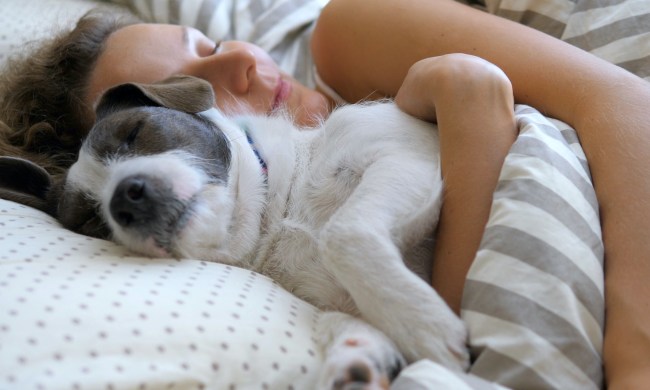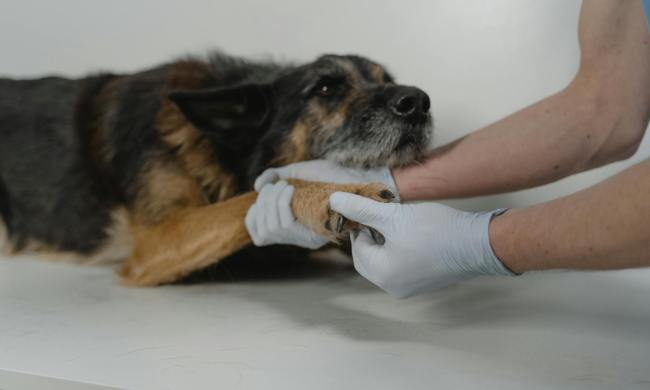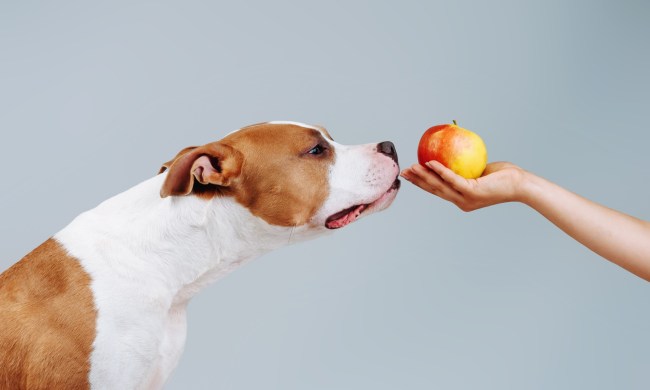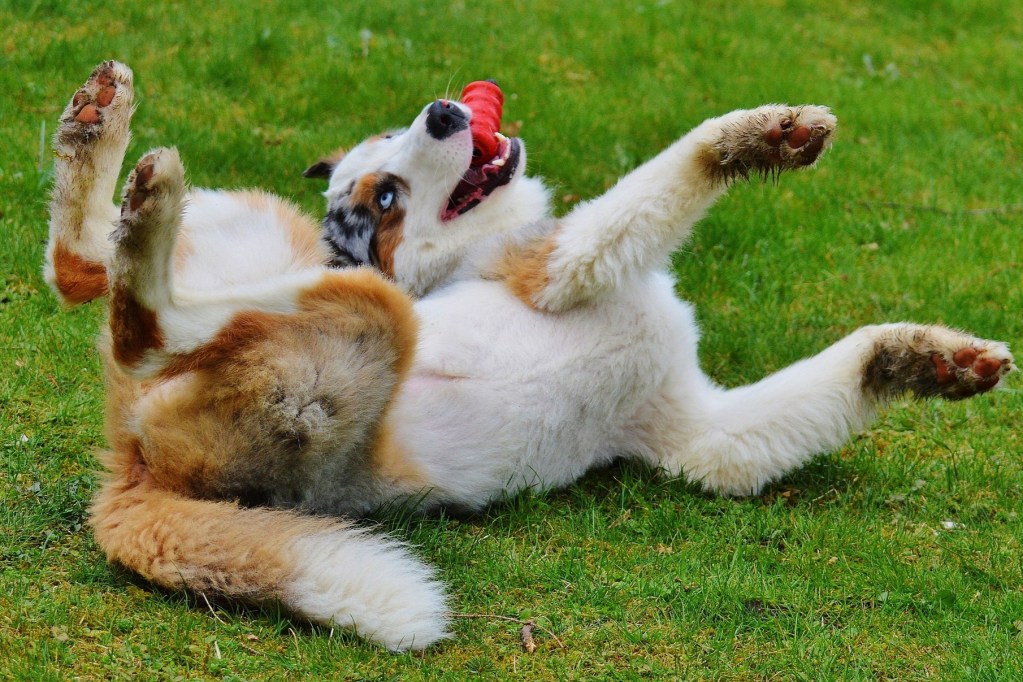
You may not see it overnight, but the pet industry is changing. Owners and professionals alike are watching pets become part of the family instead of simple companions. People are putting more effort into taking care of their pet’s health, both physical and mental, which is great news!
Pet mental health is a new topic that’s taking the spotlight thanks to these changes, which is why we asked Renee Rhoades, the head behavior consultant at R+Dogs, about the importance of your dog’s mental health. There are plenty of simple things you can do to keep your dog happy and healthy, and some of them may already be part of your routine! If not, this guide will walk you through what simple changes you can make to improve your dog’s mental health.

Why your dog’s mental health is so important
If you’ve ever faced depression, anxiety, or another mental health concern, you’ll understand just how important it is to safeguard your emotional well-being. Even short experiences with mental illness can change a person’s perspective permanently, and the same can be said for our canine friends. If you need to see it to believe it, just look at the depressed dogs in shelters.
As Rhoades told us, “Riding along the coattails of the Mental Health Matters movement has been the awareness that our dog’s mental health is just as important as ours. After all, our co-evolutionary journey is not just a fluke, we do have an incredibly special bond and science confirms it.” Still, studies of the canine mind are picking up steam even today, so there will always be more to learn about our ancient connection.
“Because of this,” said Rhoades, “I created the #MentalHealthMattersforDogsToo to help draw even more awareness toward this fantastic movement.” So what can dog owners do to protect their pup’s mental health?
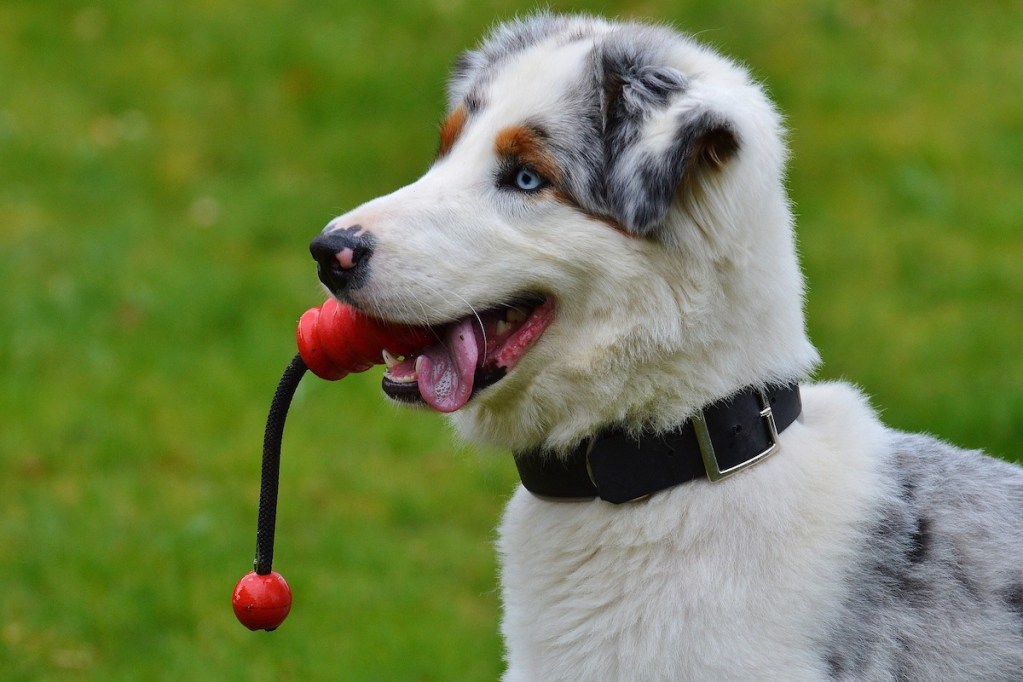
4 Ways to care for your dog’s mental health
When it comes to caring for our own peace of mind, anything from deep breathing to therapy can make an impact. Though we may not have as many tricks up our sleeves to keep our four-legged friends feeling their best, Rhoades and other canine behaviorists have plenty of resources for battling the doggie blues.
Provide enrichment activities for your pooch to enjoy
If your day simply consisted of going to work and meeting your basic needs, life wouldn’t always feel very fulfilling — right? The same can happen for dogs, even in the most loving homes. Rhoades explained, “Most of a dog’s natural behaviors are suppressed by humans when living in a domestic setting. Digging, scavenging, foraging, and chewing are just a few of the activities that we rather our dogs didn’t engage in, [even though] they need to engage in species-specific behaviors in order to feel mentally and physically fulfilled.”
Of course, that doesn’t mean you have to let your pup live out their most destructive fantasies. Tools like snuffle mats and Kong toys can keep your dog stimulated, while chewy treats can satisfy the temptation to chew. For furry friends that like to dig, consider visiting somewhere with sand or snow to let your buddy go to town. Even a new walking route can be stimulating for a dog.
Use positive reinforcement methods when training or disciplining your pup
According to Rhoades, “Coupled with our increasing awareness of the importance to safeguard our dogs’ mental health, we are likely to see even more evidence and trends to educate that positive reinforcement methods are the most ethical way to train and modify our dog’s behavior.” That’s because positive reinforcement isn’t just about correcting or teaching a behavior.
Components like nutrition, enrichment, and physical health are considered every step of the way. That means you and your dog will get a way more personalized approach that can help with anything from behavior concerns to separation anxiety.
Pay attention to your dog’s breed and instincts
Speaking of personalization, it’s never a bad idea to consider your dog’s breed when coming up with any plan regarding their health or well-being. Every breed had slightly different needs, and a lot of it has to do with what their breed was bred for. This comes in handy when you’re looking for an enrichment activity for your pup, since fulfilling their instincts will give you the greatest chance of success. It might also help you locate anything that’s missing in your dog’s life.
For example, companion breeds, such as the bichon frise, might find the most joy in spending time with you, while a hound might love to try scent work. The options are nearly endless, so don’t hesitate to do some research about your dog’s breed. Better yet, enlist the help of a canine behavior consultant.
Consider meeting with a dog behavior consultant to better understand your buddy
Canine behavior consultants like Renee Rhoades are gurus in dog well-being, so they can be wonderful guides when improving your dog’s mental health. Of course, you do need to be cautious when looking up these experts, as they may not all be as professional as they seem.
“Dog training and behavior is an unregulated industry which leaves many dog guardians unaware of unethical practices that are occurring,” said Rhoades. “Currently, there is no universal standardized requirement for someone to start training or modifying behavior in dogs and receiving money for these services.” Social media can be especially misleading, so it’s never a bad idea to look for someone who carries a “board-certified veterinary behaviorist” (DACVB) or a “certified applied animal behaviorist” (CAAB) license (via Preventative Vet).

Is socialization good for a dog’s mental health?
Just like humans, dogs benefit from socializing. Regular socialization with both people and other dogs can reduce your dog’s anxiety and improve their mood and mental health. Proper socialization helps your dog become more confident, friendly, and relaxed. Dogs that are afraid of other dogs or people need to be socialized more slowly, but over time, the positive interactions with dogs and humans can help them recover and be less afraid.
What’s more, the most common space for dog socialization (a dog park) is a great place to work on 3 of our 4 tips! There’s plenty of space to work on training, smells and new dogs provide lots of enrichment, and you can watch how your dog interacts with other dogs and people to get a better sense of their personality! If your local dog park is too crowded, or your dog is new or nervous, then socialization might be trickier. Consider looking for a local dog owners group on social media and planning a small get-together, so your dogs can meet and play in a calmer, more controlled environment.
With these tips in mind, you and your dog can be well on your way to creating a happy, healthy life for both of you. Don’t be afraid to ask for advice during any step of the process, because you never know what life-changing answers you might get!

